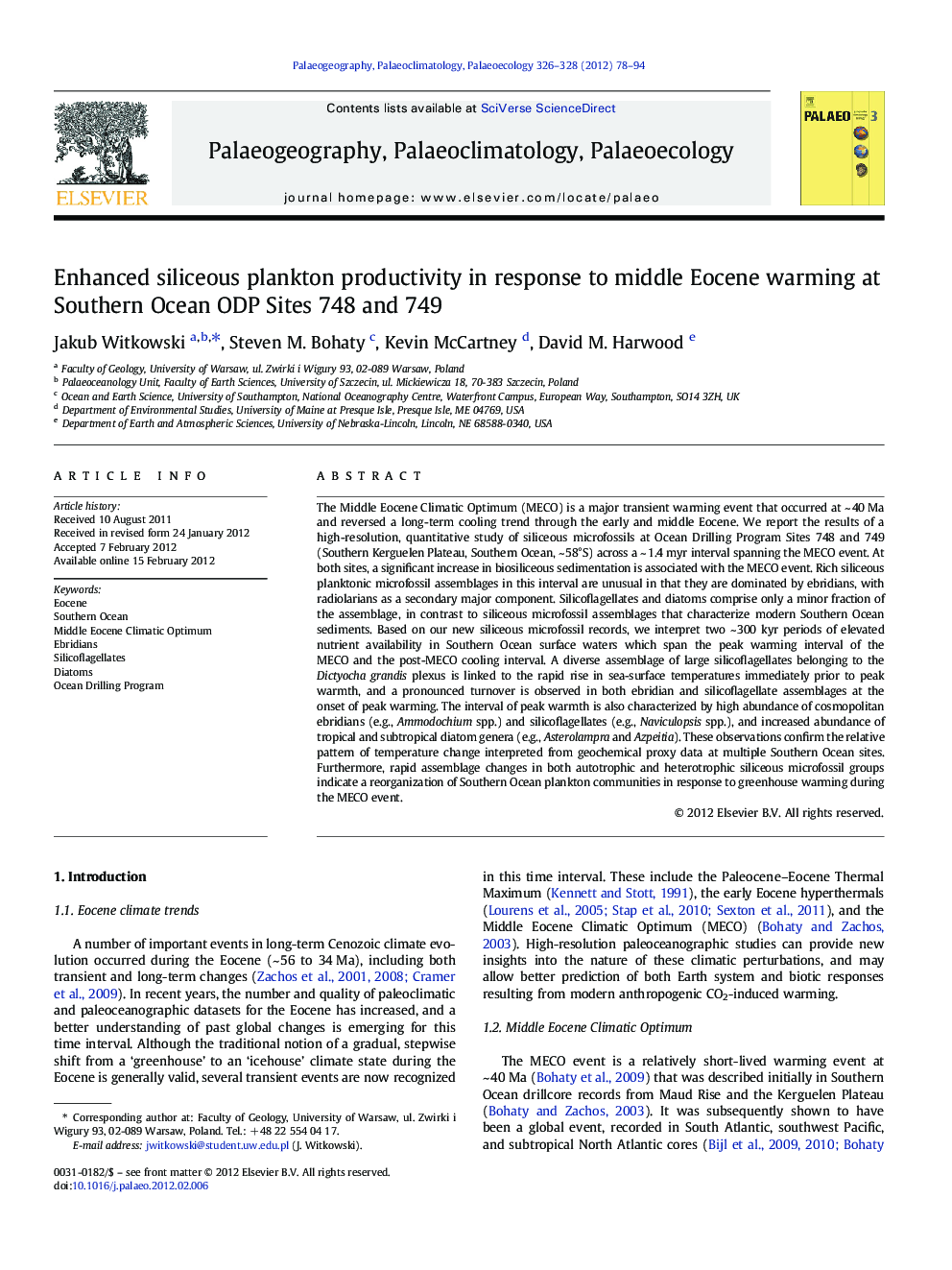| کد مقاله | کد نشریه | سال انتشار | مقاله انگلیسی | نسخه تمام متن |
|---|---|---|---|---|
| 4466967 | 1622236 | 2012 | 17 صفحه PDF | دانلود رایگان |

The Middle Eocene Climatic Optimum (MECO) is a major transient warming event that occurred at ~ 40 Ma and reversed a long-term cooling trend through the early and middle Eocene. We report the results of a high-resolution, quantitative study of siliceous microfossils at Ocean Drilling Program Sites 748 and 749 (Southern Kerguelen Plateau, Southern Ocean, ~ 58°S) across a ~ 1.4 myr interval spanning the MECO event. At both sites, a significant increase in biosiliceous sedimentation is associated with the MECO event. Rich siliceous planktonic microfossil assemblages in this interval are unusual in that they are dominated by ebridians, with radiolarians as a secondary major component. Silicoflagellates and diatoms comprise only a minor fraction of the assemblage, in contrast to siliceous microfossil assemblages that characterize modern Southern Ocean sediments. Based on our new siliceous microfossil records, we interpret two ~ 300 kyr periods of elevated nutrient availability in Southern Ocean surface waters which span the peak warming interval of the MECO and the post-MECO cooling interval. A diverse assemblage of large silicoflagellates belonging to the Dictyocha grandis plexus is linked to the rapid rise in sea-surface temperatures immediately prior to peak warmth, and a pronounced turnover is observed in both ebridian and silicoflagellate assemblages at the onset of peak warming. The interval of peak warmth is also characterized by high abundance of cosmopolitan ebridians (e.g., Ammodochium spp.) and silicoflagellates (e.g., Naviculopsis spp.), and increased abundance of tropical and subtropical diatom genera (e.g., Asterolampra and Azpeitia). These observations confirm the relative pattern of temperature change interpreted from geochemical proxy data at multiple Southern Ocean sites. Furthermore, rapid assemblage changes in both autotrophic and heterotrophic siliceous microfossil groups indicate a reorganization of Southern Ocean plankton communities in response to greenhouse warming during the MECO event.
► First quantitative siliceous plankton study of the Middle Eocene Climatic Optimum (MECO);
► Significant increase in biosiliceous sedimentation within the MECO interval;
► Southern Ocean eutrophication in response to the middle Eocene greenhouse warming;
► Migration of cosmopolitan taxa into southern high latitudes during peak warming.
► Turnover in ebridian and silicoflagellate assemblages driven by rapid temperature rise.
Journal: Palaeogeography, Palaeoclimatology, Palaeoecology - Volumes 326–328, 1 April 2012, Pages 78–94